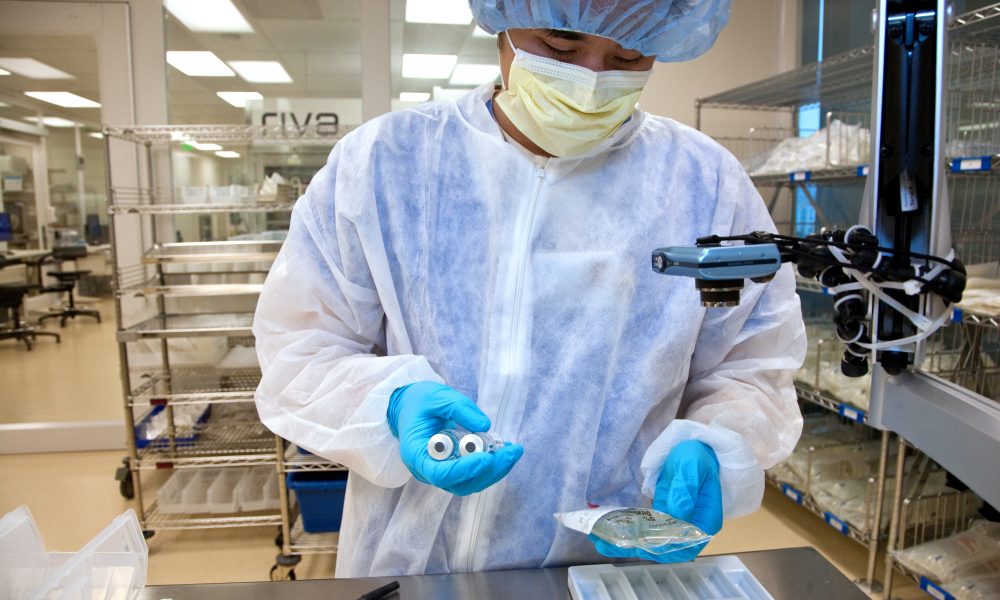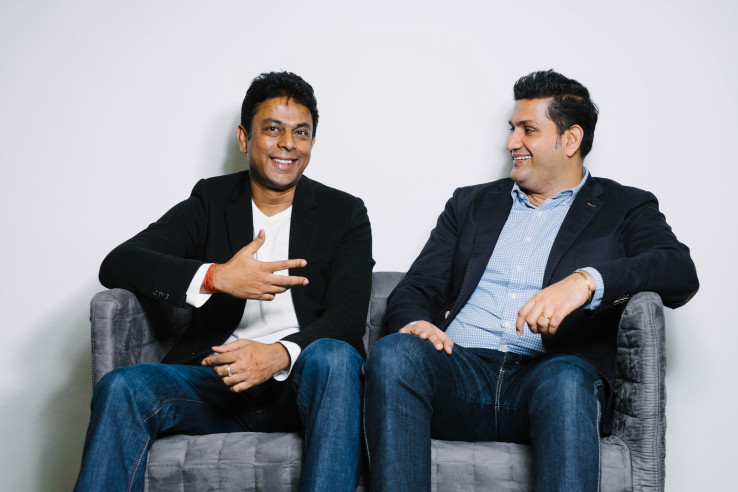Month: December 2016
Seedcom-Backed Cau Dat Farm Brings Smart Technology Into Vietnam Agricultural Production
Looking past food delivery startups or applications that do grocery shopping for the urban tech-savvy population. Internet of Things (IoT) is now also moving on to tackle the supply side, widely transforming the agricultural scene.
From solutions for small-scale farming households to large farms, the use of technology has helped farmers and agriculturalists minimize their farming effort while maintaining the optimal growth conditions of the plants.
In Vietnam, Cau Dat Farm is one of the farms using IoT in its agricultural system. The farm in Dalat currently has an underrunning IoT solution deploying a gateway to collect data such as light, humidity etc. through a system of sensors, weather stations, and robots, as to enable the management of farm operations via the cloud.
To accomplish this, the farm tech has formed a partnership with Intel in terms of importing its expertise and hardware from the inception of businesses, as well as incorporating other international hardware supplies and knowledge from agribusiness experts.
Also, understanding the operations and business strategy of Cau Dat Farm, it seems that the Vietnamese farmstead is establishing a connection between farmers through transferring the technology to other enablers.
This is because operators believe that Cao Dat Farm alone cannot cover the country’s demand for food. Hence, the key to the strategy instead is to manage the entire network through ensuring the quality, and transparency of the products made by its partners.
“Cau Dat Farm will be a platform for other agribusiness players to join, and all will produce quality goods,” Pham Ngoc Anh Tung, the director of Cau Dat Farm said.
Tung, which had a technology background in automation, was assured that joining Dinh Anh Huan’s Seedcom – one of the biggest success stories in Vietnam is positive that the application of IoT in agriculture will be robust.
Yes. Indeed it is.

Sellers in street market selling fresh organic fruits and vegetables
As aside from Cau Dat Farm, smart farming has been apparent in Vietnam with its primary movers being Captii Ventures-backed MimosaTEK, which provides real-time solutions to optimize farm operation and Tech mogul FPT Corporation, which has also partnered with Japanese IT equipment and service firm Fujitsu in a smart agriculture project in Hanoi.
But what sets Cau Dat Farm apart from its competitors is that the company is also looking to work with local telecommunication platforms which have already developed their IoT platforms. In this sense, Cau Dat Farm will build a standardized database for agriculture, which is not yet available in Vietnam.
“Once these agriculture data becomes big enough, we will be able to solve the questions of forecasting crops, diseases, and productivity. It will also help connect the value chain together, including farmers, agribusiness companies, retailers, experts, and users.” Pham Ngoc Anh Tung, director of Cau Dat Farm adds.
This is because IoT (Internet of Things) can ensure transparency of food production without amplifying the costs, at a time when the country is highly concerned about food safety. Especially with the rampant cases of food safety violations – a recent case being the mass poisoning of 34 Japanese students who visited a Five-star Hotel in Ho Chi Minh city last month.
Considering the final effect, smart farming has a bright future in Vietnam as compared to traditional forms of cultivation. As despite the growing investment in clean products with high technology that might be more time-consuming as well as taxing in price.
But the products of technology – ready-to-eat tomatoes and lettuce, grown without soil that can be consumed unwashed are filling the gap for Vietnamese that are worried about food safety. They are going organic and looking for a healthy and reasonably priced choice – which make this profitable in the long run.
For more information, please visit http://caudatfarm.com/
By Vivian Foo, Unicorn Media
China’s Luye Pharma Completes Acquistion Of Acino’s Transdermal Drug Delivery System For US$260 Million
Luye Pharma Group Ltd. (02186.HK), a professional pharmaceutical enterprise focused on R&D and manufacture of innovative pharmaceutical products has announced the completion of its acquisition of the transdermal drug delivery systems (TDS) business, Acino which is located in Zurich, Switzerland, according to a press release.
Acino has established itself as a global leader in the niche transdermal markets. The company is said to be one of the largest independent TDS manufacturers in Europe, with a product portfolio primarily focused on higher margin specialty patch categories such as central nervous system (CNS), pain and hormone spaces.
Some of the company’s notable commercialized and complex formulations include Rivastigmine, Buprenorphine, Fentanyl and fertility control patch. Post acquisition, Acino will retain the marketing rights to certain of these patched in strategic emerging markets.
The transaction saw Luye Pharma acquiring the TDS business from Acino, through the purchase of the entire issued share capital of Acino AG and Acino Supply AG for an amount of €245 million (about US$260 million).
This acquisition will allow Luye Pharma to learn and adopt practices from the integration of its acquired business. Greatly enhancing Luye Pharma’s developmental efforts in R&D, manufacturing, international registration, and market promotion of new formulation products to international standards.
“As we execute our international strategy, this transaction serves as an important milestone,” says Yehong Zhang, the chief executive of Luye Pharma, “This acquisition will significantly enhance Luye Pharma’s international capabilities and accelerate its penetration into broader therapeutic areas and geographies.”
In addition, the TDS business, with its high-quality factories with EU GMP certificate and certification from the U.S. FDA, will help Luye Pharma in meeting and exceed international standards in production, quality control, and global operations.
At the same time, Acino with its mature sales network and international presence in many developed markets around the world – especially the European region will definitely aid the giant pharmaceutical enterprise to pave the way for its mission of globalization.
The global market sales of transdermal patches reached over 5 billion Euros in 2014 and are expected to hit 6.4 billion Euros by 2020, with a projected compound annual growth rate greater than 4%1. The global market for TDS business is huge with strong growth potential.
It would also appears that Luye Pharma is leveraging its growth on M&A as Luye Pharma has also previously acquired Healthe Care Australia in April this year for an undisclosed amount. Acino, which acquisitions has begun since July is, in fact, its second acquisition.
Still, Luye Pharma, the leading Chinese pharmaceutical enterprise will continue to serve and promote human health through professional technology, especially when the China mainland is an emerging market which is facing the challenges of an aging population that are accompanied by potential patients of chronic diseases, which represents a substantial market for TDS. At present, there are currently 260 million people suffering from chronic diseases in China.
Despite that, the company is moving forward and working to develop Luye Pharma into one of the most respected leading global pharmaceutical enterprises in the world. The enterprise, since inception, has adopted innovation, being one of the pioneering Chinese pharmaceutical enterprises to have conducted clinical trials in international markets. Luye Pharma currently has 5 innovative products at various stages of clinical research with significant breakthroughs in the U.S.
On a similar note, Luye Pharma is backed by CITIC Private Equity, which 5.92% ownership of Luye Pharma Group remains unchanged since 2014, according to the company’s 2015 annual report.
For more information, please visit http://www.luye.cn/
By Vivian Foo, Unicorn Media
KFit, Guardian, La Juiceria Join BookDoc Activ To Give Rewards For Staying Fit
Combining walking with every Malaysians’ favorite cultural pastime – getting discounts, BookDoc is introducing BookDoc Activ, an excuse much needed to start your exercise plan.
This is a new collaboration where BookDoc will have an ongoing partnership with major retailers and service providers which share the same theme – that is three well-known healthcare brands in Malaysia, namely Guardian, La Juiceria and Kfit to reward BookDoc Activ users for their daily steps.
Users are required to hook the app to a pedometer application and start walking until they reach a daily step threshold. With accumulated points, they can then trade it for the offer they desire. Simply put, the app is an incentive for people to start living a healthier life.
Though BookDoc Activ is promoting the prevention is better than cure approach, the application designed by Dato’ Chevy Beh, a former Managing Director of BP Healthcare Group, BookDoc is originally intended to bridge the gaps in informational asymmetries and reduce inefficiencies in healthcare.
That is to say, BookDoc acts as a platform that can be used to help immediately connect patients in need with healthcare experts who can assist anytime and anywhere – its significance lies in the gift of time that can create a life and death difference.
But that is not all to Dato’ Chevy’s BookDoc as the application also serve another purpose, having partnered with Agoda in July, to help patients with doctor appointments that require traveling. With this feature, it can cater to the needs for booking a doctor’s appointment as well as the accommodation at the same time, through a single app.
Essentially, this function is because BookDoc recognizes that there is a big market of medical tourists. As Chevy puts it, “In this region alone, medical tourism is worth about US$6 billion. Medical tourists amount to about US$250 million in Malaysia, with around 850,000 tourists. In Singapore, there are also about 1 million tourists, generating about USD800 million.”
On a similar note, this region of medical tourism is also taken interest by another Malaysian startup, Smilelink Dental Group who intends to venture into this market of medical tourism as well, focusing on dental healthcare
Though looking back at BookDoc Activ, this new feature is a strategic one as well. As this move not only allows BookDoc to expand their target group since even healthy people now have a reason to download the app but the application through this access to a wider audience can create an awareness of the app among Malaysians.
Additionally, BookDoc has expanded its reach to Singapore, Hong Kong, and Thailand. And although BookDoc offers rewards, acommodation booking, and a healthcare platform, in the simplest terms, BookDoc, as a whole, is an online platform that aims to create a healthier Malaysia, addressing the public’s health problems.
“BookDoc’s objective is not only to provide a seamless platform and access to medical services but is also about taking care of healthy people, as much as we take care of the medically less fortunate, and we believe in rewarding them for staying healthy and active,” said BookDoc founder Datuk Chevy Beh.
The healthcare app is also planning to roll out more discounts with their partner in stages, so users can be on the look out for updated deals.
For more information, please visit https://activ.bookdoc.com/
Singapore Jungle Ventures Closes Second Funding Round With US$100 Million
Singapore-based venture capital fund Jungle Ventures has made the final close of its second funding round, after meeting its target of US$1OO million. The VC funding plans have started since September 2015. These new funds represent a big step comparing to Jungle Venture’s first funding round in 2010, whereby the firm first debuted with only US$10 million when launched in 2011.
The VC, then, was headed by Amit Anand and Anurag Srivastavaa, with its first pan-Asian super Angel fund participated by individual investors which included founder of Match.com, Interwoven and Encentuate, Peng T Ong; Chief Executive of Space Matrix, Lim Der Shing; Former Head of engineering at Skype Toivo, Angus and co-founder of Sony Entertainment Television Jayesh Parekh among others.
And throughout this six years, the venture capital firm has expanded its investment portfolio with more than 30 investments using the funds from its initial round. These investments include a long list of companies across different regions which include firms such as Singapore-based TradeGecko, Travelmob, Fastacash and Crayondata; India-based Zipdial, Livespace, and Pokkt; Malaysia-based iMoney and CatchThatBus as well as Thailand-based Pomelo Fashion and Australia’s Edrolo.
According to a statement, the selection of these investments is based on two categories. That is they either have the potential of becoming a regional category leader, for example, Zipdial that was acquired by Twitter and iMoney, which has the potential of dominating the entire South East Asian market. Or they can have the potential to be a global category leader such as TradeGecko, an inventory management software or interior design company, Livspace.
With the new funds, this will also bring change to the operations of Jungle Ventures as the VC is now likely to cut larger cheques and will likely shift its initial focus on seed-stage deals to Series A and Series B investments primarily in Southeast Asia, India, and Australia. However, the company will also still be very much involved in early stage startup work, being handled by SeedPlus, a new fund that it has to establish in May this year.
According to a statement, Jungle Ventures second fund attracted existing and new investors including institutions such as Temasek Holdings, International Finance Corporation, National Research Foundation of Singapore, Hubert Burda Media as well as leading family office investors such as the Kewalram Chanrai Group and Khoon Hong Kuok.
“This is a significant milestone for Southeast Asia’s fast-growing startup ecosystem and we are grateful fo the faith existing investors and new partners have shown in us. With an exceptional team of 15 investing and operational professionals we intend to continue to invest and help build the best technology companies from this region,” said Amit Anand, the Founder of Jungle Ventures.
For more information, please visit http://www.jungle-ventures.com/
By Vivian Foo, Unicorn Media
- ‹ Previous
- 1
- …
- 9
- 10
- 11




